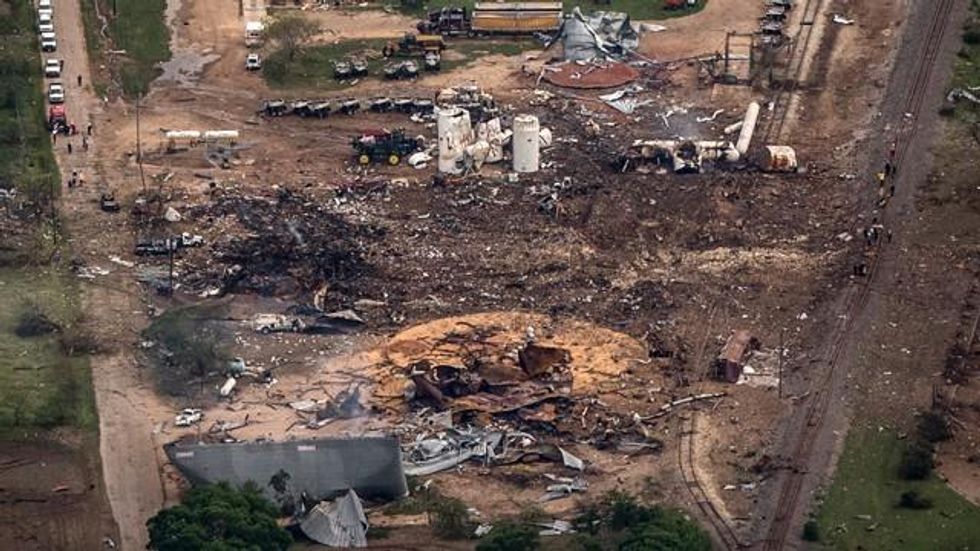Texas Explosion: Gov't Shared Info for Anti-Terrorism, But Not Workplace Safety

But a report published in the Dallas Morning News on Tuesday found that at least three state agencies-- the Department of State Health Services, the Texas Commission on Environmental Quality (TCEQ) and the Office of the Texas State Chemist--did know that the plant had a large stockpile of ammonium nitrate. However, they did not share that information with OSHA or DHS.
Representatives from the TCEQ and the chemist's office told reporters that their role in regulating the plant was not to ensure fire safety, but to handle other issues, such as the possibility of environmental contamination.
Ironically, the chemist's office did know to share information with other agencies on the terrorism risks of ammonium nitrate. According to the Dallas Morning News, "Herrman, head of the state chemist's office, said his staff has attended training in weapons of mass destruction and law enforcement because of security concerns over theft or misuse of ammonium nitrate. But he could not recall any meeting between his office and the TCEQ to discuss in detail how to share information on non-security-related safety concerns about the chemical."
Former OSHA official Celeste Monforton says that communicating only about terrorist threats is emblematic of a system that does not see workplace accidents as a comparable danger.
"A wise public protection system would look at these risks in a more integrated way," says Monforton. "If you are looking at the hazard of ammonium nitrate, you would look at from a way of variety of potential ways it could be mishandled whether it could be stolen or used in a terrorist attack or being used by a company in a way that puts the community and workers at risk."
Workplace safety advocates are hopeful that the West, Texas explosion may force a new conversation on workplace hazards.
"Workplace incidents cause far more deaths every year in the U.S.--some 13 a day--than terrorist acts, yet our government agencies spend untold millions on terrorism prevention, while largely ignoring the risks of industrial catastrophes," says National Council for Occupational Safety and Health Executive Director Tom O'Connor. "I would hope that the West Fertilizer plant explosion will cause us to reconsider those priorities."
However, Monforton is not optimistic that Americans will ever focus on workplace accidents with the same intensity that they do on terrorism.
"When the enemy seems to be a foreigner or people who are not like us, you can focus attention on them," says Monforton. "It's much more uncomfortable when it's someone you know or who looks like the people you go to church with or who lives down the street that has caused pain and destruction in your community."